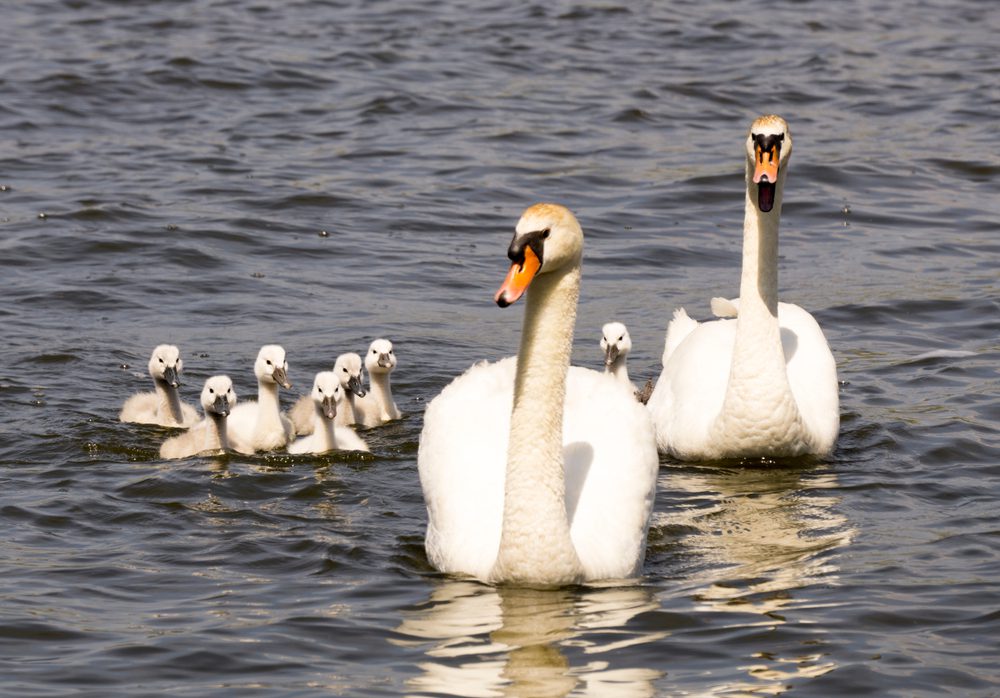It’s an often touted piece of trivia that the monarch of the UK owns all the swans of the land. There are a few caveats to that claim, but it’s largely true – and like many traditions belonging to kings and queens, it has a bizarre and age-old backstory.
Although he was only coronated on May 6, 2023, the Prince of Wales became King of the United Kingdom following the death of his mother Queen Elizabeth II on September 8, 2022. As part of this transfer of power, he also inherited his claim to some of the country’s swans.
Technically, the monarch of the UK doesn’t automatically “own” all swans in the country. They do, however, withhold the right to claim any mute swans (Cygnus olor) swimming in open waters on public lands that are unmarked.
It’s said that King Charles III only exercises his right to swan ownership over parts of the River Thames in London and its tributaries, just as Queen Elizabeth did. His right of ownership also doesn’t apply to other varieties of swans found in the UK, such as whooper swans and Bewick’s swans.
Still to this day, the monarch appoints staff in swan-related roles, with The King’s Swan Marker carrying out a swan-counting ceremony on the Monday of the third week in July each year. After all, if you had a fortune of over £1.8 billion, who is going to stop you having your own personal Swan Marker?

The taste of swan meat has been described as gamey, similar to duck or goose.
Image credit: Sirin Gnadeberg/Shutterstock.com
But what is the special significance of swans? It ultimately can be linked back to the unusual appetites of the nobility when the elegant bird became the must-have delicacy for the mega-wealthy in medieval England.
“Swans then were an extremely important food source and served up at banquets and feasts, really for the wealthy,” David Barber, who served as Queen Elizabeth’s swan marker for decades, told Reuters in September 2022.
“As time went on, different people owned swans. The crown gave them the right to own them. And they had the young cygnets and they would fatten them up for the Christmas feasts,” added Barber.
Royal ownership of swans in the UK can be dated back to at least 1186 CE. In one of the most lavish displays of this tradition, some sources suggest that Henry III ordered 40 swans for his Christmas celebrations in 1247 CE.
By the beginning of the 15th century CE, keeping swans became more of a status symbol for the aristocracy, who kept the animals to flaunt their fame and fortunes. Today, the tradition of swan keeping has moved even further away from its origin as a dinner centerpiece and has almost nothing to do with grand banquets (at least, that’s what we lowly common folk are told).
You might have also heard that killing a swan in the UK is considered an act of treason. However, that’s not quite true either. The law is a bit hazy, but according to the UK Law Commission: “Killing one of the Queen’s mute swans may be unlawful, but it has never been an act of treason.”
In other words, killing a swan will not result in you being executed at the Tower of London, but don’t be surprised if you face criminal charges (and some understandably angry animal lovers knocking at your door).
Source Link: The Curious Reason Why King Charles III "Owns" All The UK's Swans